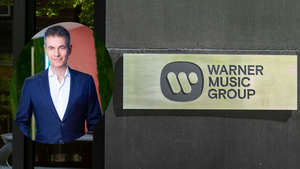Warner Music boss Robert Kyncl - one year into the job - is now focused on the next ten. So much so, he’s dubbed 2024 “the year of the next ten”.
In a start-of-the-year memo to his staff, Kyncl writes: “The music business is in a very different place than it was ten years ago. Now, we’re in a position of strength. That is the time to get ahead for the future”.
To that end, 2024 will be the year when “we move at velocity to set ourselves up for a winning decade in the new world”.
His memo sets out three top level priorities: “growing the engagement with music”, “increasing the value of music” and “evolving how the team works together”.
Under the banner of engagement he talks about A&R, marketing, catalogue, distribution and administration doing what they do but, you know, better. “Geographic focus” in A&R, “best-in-class solutions” in marketing, “holistic deep and shallow catalogue management”, and distribution and admin infrastructure that is both super good and operating at scale.
On evolving how the teams work together, he talks about expertise, transparency and flexibility, and that constant holy grail for big corporations, more collaboration across the business.
However, probably the most interesting thing in the memo is what Kyncl has to say about increasing the value of music, even if that sees his forward-looking 2024 memo focusing on one of the big talking points of 2023.
“We need to align our [streaming service] relationships so that we appropriately value the contribution of our artists, songwriters and catalogues”, he writes.
That means stopping “dilution from millions of low-value and functional tracks” and maximising “price opportunity for our music”. So, basically, add another dollar to streaming subscriptions and proceed with the somewhat controversial revamp of the streaming business model that downgrades - or entirely freezes out - some grassroots artists, and functional audio.
But it’s not just about meddling with the streaming model. Kyncl also acknowledges the under-tapped potential of super-serving super fans. “We need to develop our direct artist-superfan products and experiences”, he notes. “Both artists and superfans want deeper relationships, and it’s an area that’s relatively untapped and under-monetised”.
He’s not wrong. And at least having major labels more effectively collaborating with their artists on better serving superfans shouldn’t cause any controversies by negatively impacting on other makers of music and audio content. So, a win for everyone!

